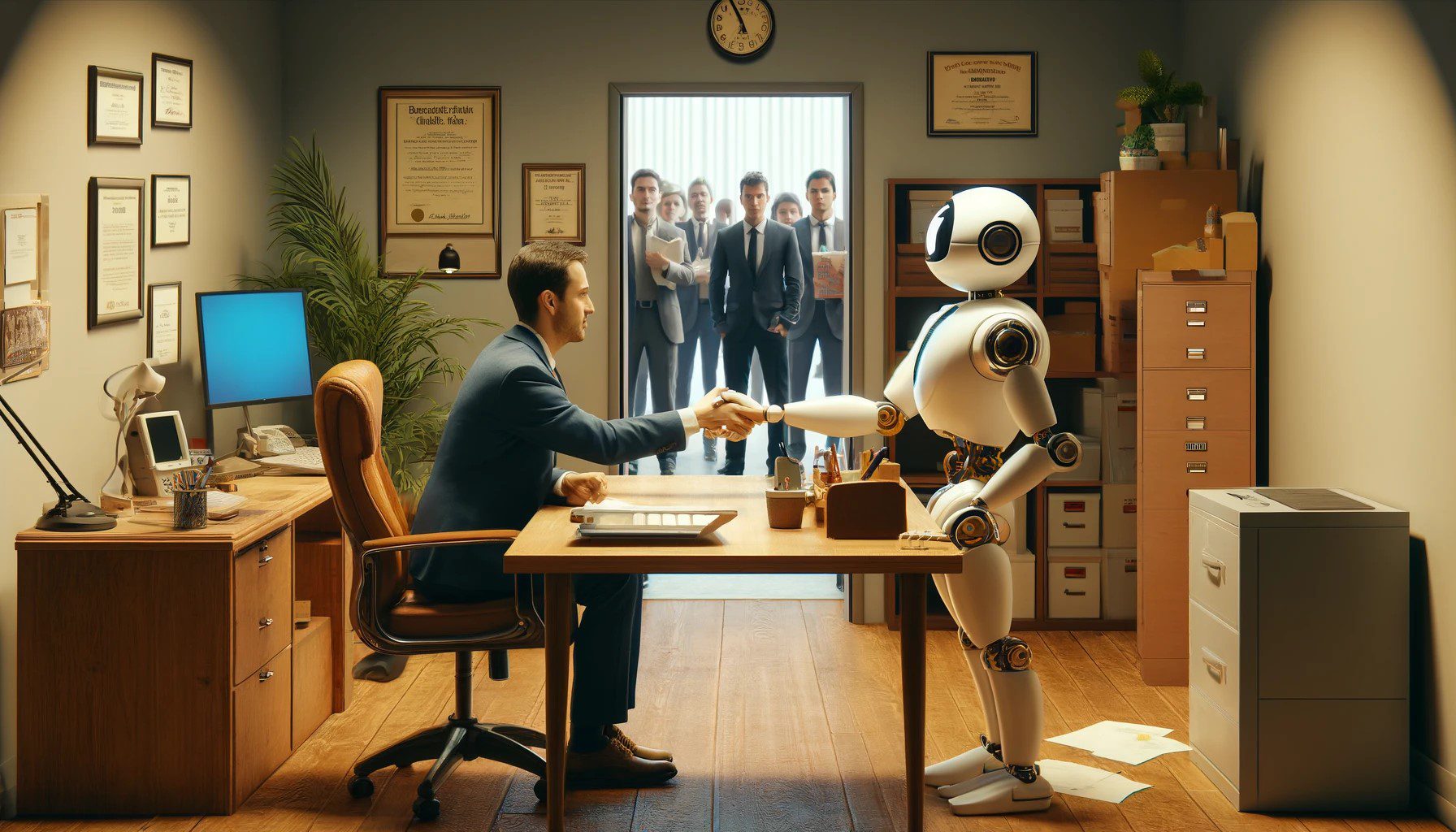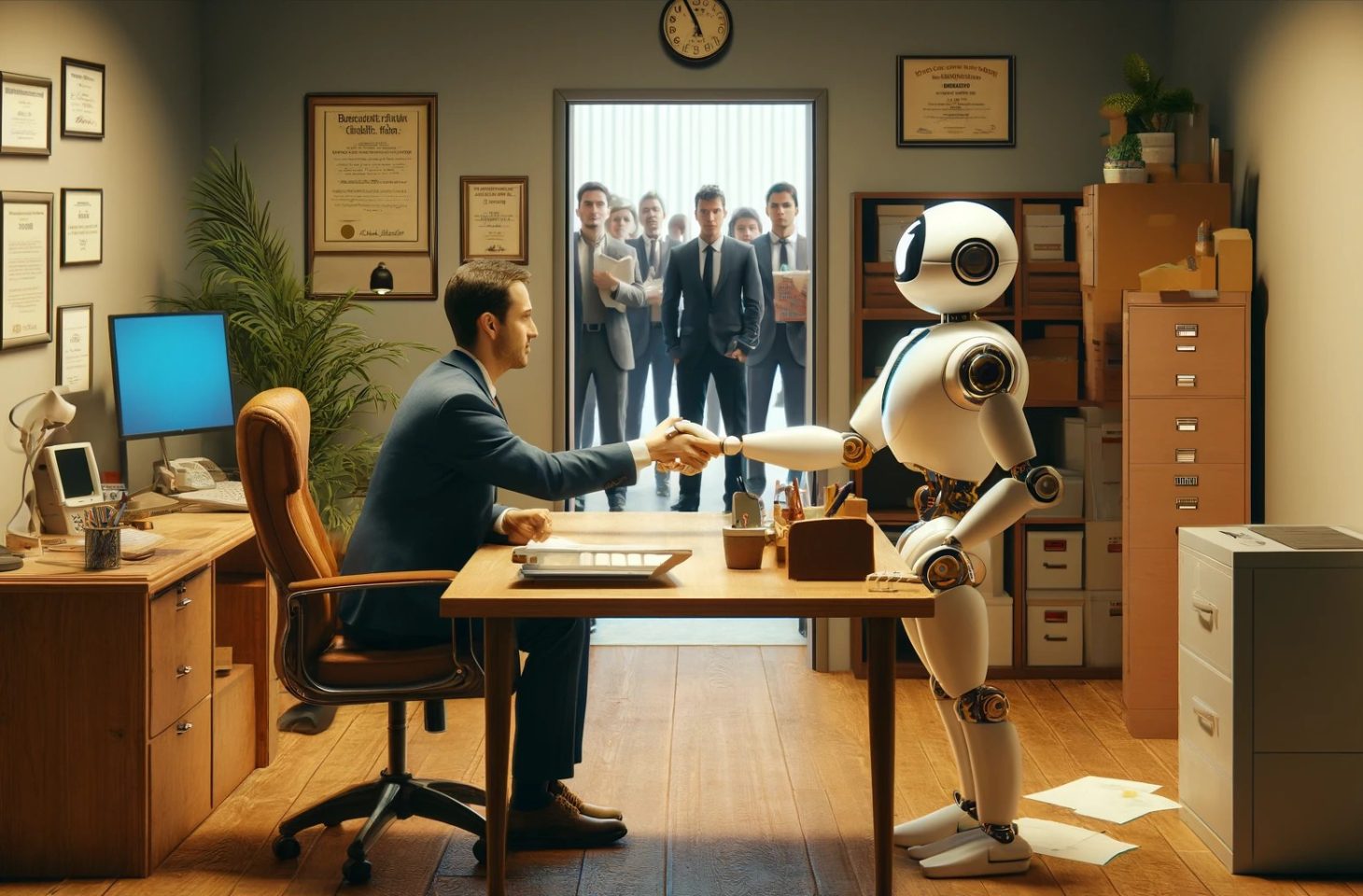AI experts: “AI is not a threat to jobs”
- April 17, 2024
- 0
Belgian AI experts agree: Although AI will impact the way we work, the technology does not pose a threat to jobs. “Cognizant analyzed 1,000 jobs in a study,”
Belgian AI experts agree: Although AI will impact the way we work, the technology does not pose a threat to jobs. “Cognizant analyzed 1,000 jobs in a study,”


Belgian AI experts agree: Although AI will impact the way we work, the technology does not pose a threat to jobs.
“Cognizant analyzed 1,000 jobs in a study,” says Gregory Verlinden, associate VP of analytics and AI at the company. “These jobs included approximately 18,000 different tasks. The study shows that with the help of AI you can save around 25 percent of time today. What do we do with the freed up time?”
At the invitation of ITdaily, Verlinden sits at a table with four other experts for a conversation about AI, where the effects of classic and new generative AI on the content and availability of jobs are discussed in detail. The tenor there is remarkably positive. Nobody fears major negative effects of AI on effectiveness, on the contrary.
“The question is not whether more work should be done with fewer people in the future,” notes Antoine Smets, co-founder and CEO of Klassif.ai. “That will certainly be the case.” In his view, generative AI offers a solution to this problem. Frank Callewaert, CTO BeLux and EU Institutions at Microsoft, completely agrees. “Companies want to grow. With genAI they can do this without having to hire additional people.”
Companies want to grow. With genAI they can do this without having to hire additional people.
Frank Callewaert, CTO BeLux and EU institutions Microsoft
The fear of job losses due to automation is dismissed as unfounded by those present. Koen De Maere from Isaca illustrates: “Despite increasing automation, the unemployment rate in Belgium has fallen sharply in recent years.”
Nobody believes that AI will replace everything or everyone. “The human factor remains very important,” says Véronique Van Vlasselaer, Analytics and AI Lead South West and East Europe SAS. “There are two camps. One person is afraid of AI, the other has blind trust. For example, I saw a published article that directly copied the results of generative AI without anyone looking at it. The text began with Of course I can write an introduction for you. I find that worrying.”
The human factor remains extremely important.
Véronique Van Vlasselaer, Analytics and AI Lead South West and East Europe SAS
Callewaert emphasizes that generative AI will be rolled out as a co-pilot. “The co-pilot does some of the work, but the responsibility lies with the user.” AI must therefore primarily complement existing jobs.
“People want more meaning in their work,” says Smets. “Generative AI can eliminate redundant tasks so people find more meaning in their work. AI won’t necessarily create all new jobs, but it will change the way existing jobs are filled. There has to be one Return on emotional investments come.”
Generative AI can eliminate redundant tasks so people experience more meaning.
Antoine Smets, co-founder and CEO of Klassif.ai
“In jobs that are not always perceived positively, such as call center clerks, AI helps provide more meaningful answers,” says Verlinden. “The individual impact of employees increases and motivation increases. In addition, people stay at their jobs longer.”
De Maere believes the call center is an excellent example. “Social skills are important, but the job entails a lot low value-Work that needs to be done but is not pleasant. AI takes over this part of the work, allowing the employee to focus on the social aspect and the relationship with the customer.”
There are other examples too. “Developers generally have little motivation to write documentation for their code,” laughs Callewaert. “AI can automate much of this work, allowing programmers to focus on their most important skills.”
“There is a fear that AI will take over tasks,” summarizes De Maere. “But we have to make it clear to people that not everything they do depends on technology.” Callewaert agrees: “People work with people, and they want to work with people too.” AI will not replace jobs, but it will make you feel more human in your job.”
We need to make people realize that not everything they do depends on technology.
Koen De Maere, Board Member and Director of Marketing and Communications, Government Relations and Advocacy Isaca.
That all sounds great, but the signatory and anchor on duty still has certain reservations about the good news broadcast. If we go back to the initial value, we see an efficiency gain of 25 percent. It seems optimistic to assume that publicly traded companies will not use this to downsize their workforce.
Those present do not agree with this observation. Callewaert: “Many vacancies are not being filled today. “AI provides opportunities to prepare people to perform other tasks, supported by AI,” he says. “Companies want to grow. With genAI this is possible without having to hire additional people.”
Verlinden shares this opinion: “Today we rely on global outsourcing to tie up capacity. AI partially solves this problem and can help protect capital sooner.” Van Vlasselear adds: “AI will also create a lot of jobs. You cannot build an AI system that supports specific business processes on your own. It takes a whole team with different profiles to make an AI system successful. Once it’s ready, you need to monitor it continuously. This also requires human input.”
The five experts at the table agree that implementing AI comes with challenges. Smets: “The first impression is important. People don’t like change, so you need to clearly explain what you are doing and what positive effects it will have. It is better not to use words like automation when rolling out. The implementation must be understandable and bring benefits quickly.”
AI is not a ghost that takes away jobs.
Gregory Verlinden, Associate VP Analytics & AI Cognizant
The consensus is clear. Verlinden: “AI is not a ghost that takes away jobs.” According to the experts, AI and generative AI in particular should primarily eliminate the boring aspects of jobs. Since more work will have to be done with fewer people in the future, they believe that technology will not have a major negative impact on employment. They are more likely to see jobs with more satisfaction and growth potential for companies that don’t have to look for additional employees in a world where job openings are already difficult to fill.
This article is part of a series following the AI roundtable organized by ITdaily. Read more here.
Source: IT Daily
As an experienced journalist and author, Mary has been reporting on the latest news and trends for over 5 years. With a passion for uncovering the stories behind the headlines, Mary has earned a reputation as a trusted voice in the world of journalism. Her writing style is insightful, engaging and thought-provoking, as she takes a deep dive into the most pressing issues of our time.